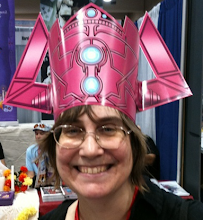"The paper draws on a survey of early-career researchers to examine their approach to academic literature, such as how and why they read it, how much time they dedicate to it, what informs their reading choices, and how they assess quality. One-on-one interviews were then conducted with a range of prestigious scientists including Eugene Garfield (Thomson Reuters Scientific) and Richard Zare (Stanford University) to interpret the results in the broader research environment. Finally, current and past members of Annual Reviews staff explain the lifecycle of a critical review article, in terms of how it helps scientists address the challenge of information overload. The white paper brings together these different perspectives and proposes future ways in which authors, readers, editors, librarians, and publishers may filter the flow of scholarly content. "At the WSU Libraries we have a subscription to Annual Reviews - find it (them?) at our Articles and Indexes page. There is a criminal justice annual review series that is not an AR product, Crime and Justice: A Review of Research .
Tuesday, May 3, 2011
Critical Reviews and Information Overload (White Paper)
Anyone who's ever had a non-Composition library class with me may have heard me talk about one of my absolutely favorite resources: Annual Reviews (and similar critical/review publications not published by AR). Here's a White Paper from the AR people on how critical reviews (like the reviews published by Annual Reviews and the CJ one mentioned below) can help with the problem of information overload (which in turn is related to information literacy...). 17-page PDF.
Labels:
Annual Reviews,
Information Overload
Subscribe to:
Post Comments (Atom)

No comments:
Post a Comment